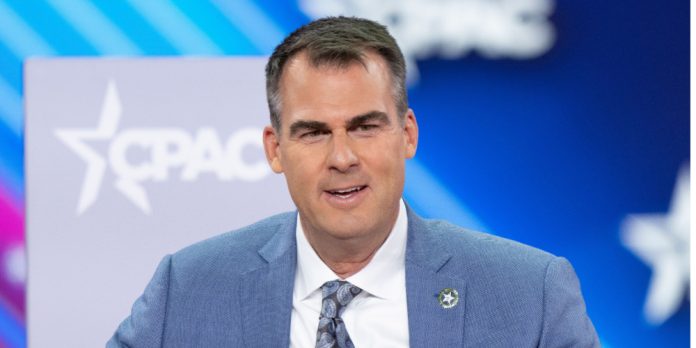Gov. Kevin Stitt announced last week that he will make a push to bring sports betting to Oklahoma in 2024.
Last year an effort to legalize sports betting from Rep. Ken Luttrell breezed through the House before stalling in the Senate.
As Luttrell told local outlet KFOR though, Stitt did not consult him before announcing his own plan.
“I promised Oklahomans if we pursued sports betting, we would do it right— and this plan does just that. Thirty-five states have already legalized sports betting, and it’ll be a great revenue stream for the state. Tribes will be able to add it onto their existing infrastructure, and Oklahomans can access it right from their phone,” Stitt said.
The broad strokes of Stitt’s plan include:
- Tribal retail sports betting taxed at 15%
- Online sports betting with a $100,000 annual license taxed at 20%
- No college prop betting
Apparently, Luttrell was not the only group Stitt did not speak with before announcing his plan. The Oklahoma Indian Gaming Association issued a statement about the announcement:
“The Oklahoma Indian Gaming Association was not consulted prior to Gov. Stitt releasing his sports betting plan. The members of the OIGA have been preparing to receive an offer from the State on sports betting for the past couple of years, and while we appreciate Gov. Stitt finally joining the sports betting conversation, to date he has not engaged in meaningful and respectful government-to-government discussion with tribes. We remain hopeful that he is committed to moving forward in a productive manner in accord with established law and process, which would include working with the Oklahoma Legislature to offer a compact supplement to tribes within the State-Tribal Gaming Act construct that protects the tribes’ ‘substantial gaming exclusivity.’ To approach it otherwise is simply to invite failure.”
Sen. Bill Coleman, who sponsored the legislation along with Luttrell expressed his disappointment too but had hope this is just the start of the conversation.
“It’s frustrating that he didn’t feel it necessary to collaborate with those of us who have been diligently working on this major issue for over a year now, but I’m hopeful that will change in the coming weeks,” Coleman said. “While the governor’s plan might be a starting point, I’ll be interested to see if he has contacted or worked with our tribal partners to get their input. A lack of coordination between the executive branch and tribal leadership was the main reason our bill stalled this session.”













